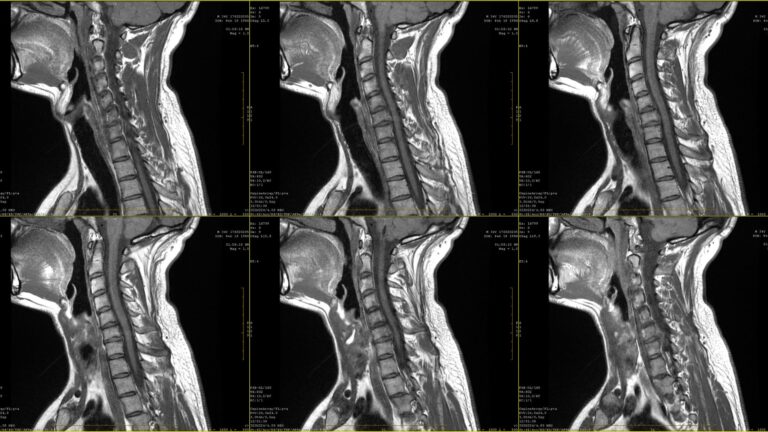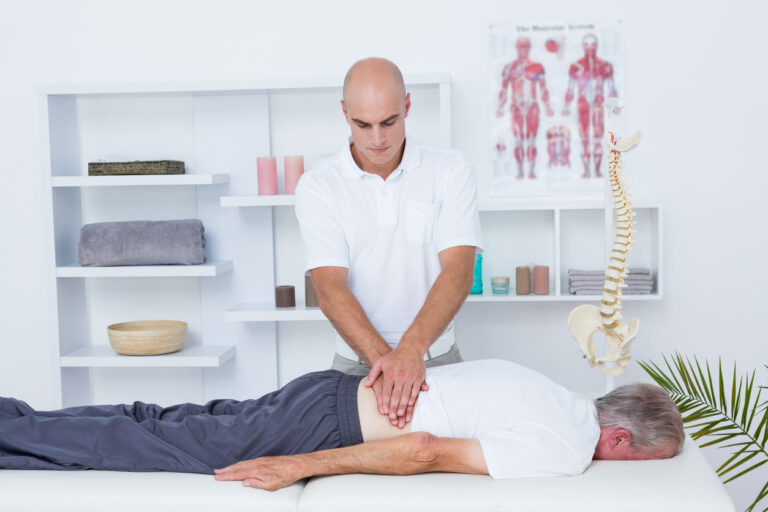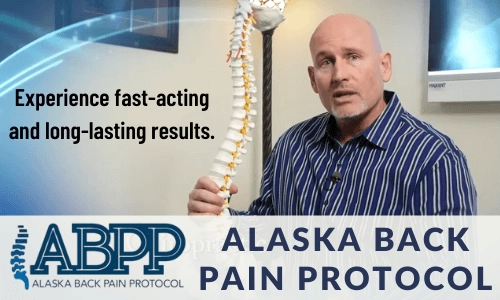Pinched nerves are no fun. If you’ve ever had one (or you think you have one now), you know just how bad they can be. Sometimes the pain is persistent. Other times it’s intermittent. Either way, you’ll want to know whether it’s getting better or worse. And the best way to know this is by knowing the signs your pinched nerve is healing.
A healing pinched nerve may not always feel like it’s actually healing. It usually means an unpleasant tingling feeling in the affected area, whether it be the arm, shoulder, neck, leg, or back. If this pain and tingling moves over time, it’s a sign that the pinched nerve is healing!
Pinched Nerve Healing Time
Now that you know the signs of a healing pinched nerve, you may be wondering how long it usually takes for pinched nerves to heal. But before we answer that question, it’s important to consider that waiting for the nerve to heal is not a valid treatment option. In fact, waiting isn’t even close to treatment. Most pinched nerves will not fully heal on their own.
To keep the pinched nerve from coming back and getting worse, you’ll need to take some action. Luckily, for most people, this doesn’t require a lot. More on that later.
Most pinched nerves take a maximum of six weeks to heal — with the proper care. Without the proper care, you could be looking at months. And the longer you allow the nerve to stay pinched, the more likely you’ll suffer from permanent damage.
Nerve Regeneration and Healing
You may have heard of nerve regeneration. Luckily, most people with pinched nerves won’t need to worry about nerve regeneration treatments. Conservative treatment options are usually enough to heal the pinched nerve and prevent it from coming back.
That said, you’ll want to see a doctor after a week if your symptoms don’t improve or get worse. And if you have severe pain, loss of sensation, bowel problems, or trouble using the affected limb, it’s best to seek emergency care right away.
If you’re suffering from a pinched nerve, contact us at Better Health Chiropractic Juneau. As an expert chiropractor with his team of physical therapists and massage therapists, we can help relieve your pain and get you back to normal!
Common Pinched Nerves
Before we talk about some secret treatments for pinched nerves, it’s a good idea to talk about the most common pinched nerves. These include:
- Sciatica
- Carpal Tunnel(1)
- Neck Area
- Shoulder Area
- Low Back
Nerves run throughout your entire body, so it’s possible to experience a pinched nerve almost anywhere. But it’s most common to have a nerve pinched at joints since there’s a lot of movement in these areas.
Sciatic Pinched Nerve Healing Signs
Since sciatica is common and often quite painful, we’ll use it as an example. After all, the sciatic nerve is the biggest nerve in the body. And approximately 90% of sciatica cases are caused by a herniated disc pinching the nerve root.(2)
Many people think that their sciatica is getting worse when it’s actually getting better. This is because the pain and tingling seem to move up the leg, often causing more pain in the buttock and lower back. However, if the pain is moving like this, it’s a sign that sciatica is healing. If the pain stays in one spot or moves down the leg, it’s a sign that things are getting worse.
And while not all pinched nerves will get worse before they get better, the movement of the pain and tingling means it’s likely healing and there’s a light at the end of the tunnel.
Helping Your Pinched Nerve Heal
Pinched nerves don’t come out of anywhere. They’re a sign that something is going on in the body that shouldn’t be. Often, this has to do with your posture, workstation, lifestyle habits, or recent injury. You could also be causing problems by sleeping on the wrong pillows or mattresses. This is why it’s important to consider the best sleeping position if you are suffering from a pinched nerve.
The problem is that determining what caused your pinched nerve is easier said than done without the help of a medical professional. By seeing a chiropractor or physical therapist, you can help determine what’s causing the nerve pain.
Conservative Treatment Works
Luckily, most pinched nerves won’t need surgery or any other invasive treatment to heal. Medical professionals recommend conservative treatments for pinched nerves before considering things like surgery.(3) These treatments usually include one or more of the following:
- Chiropractic adjustments
- Physical Therapy
- Massage
- Stretches and exercises
- Lifestyle and posture adjustments
Chiropractors treat pinched nerves with a number of different modalities. These can include things like laser therapy, ultrasound, flexion distraction, and spinal manipulation. When used together, these methods can help to heal your pinched nerve and keep it from recurring again. Especially if you take to heart the lifestyle and posture adjustments recommended by the chiropractor, if these are factors causing your pinched nerve.
One study, detailing the treatment of pinched nerves in the neck, found that chiropractic manual therapy gave most of the patients significant relief after only 13 sessions.(4)
Only when conservative treatments have been exhausted should you consider risky treatment options like surgery.
Resources:
1. https://pubmed.ncbi.nlm.nih.gov/9227952/
2. https://www.bmj.com/content/334/7607/1313?flh=
3. https://www.health.harvard.edu/blog/taming-pain-sciatica-people-time-heals-less-2017071212048
4. https://www.sciencedirect.com/science/article/abs/pii/S0161475403001544









